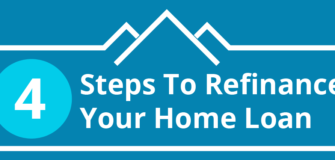Share
Things To Consider When Choosing Between A HDB Loan And A Bank Loan
Loan Size And Downpayment
Getting a loan from HDB allows you to borrow a larger amount (90%) based on the value of your house, compared to a bank home loan (80%). In addition, a HDB home loan allows you to make the full down payment in CPF instead of cash. Where a Bank Home Loan requires that you pay at least 5% of the property price in cash.
Lower Rates Vs Stability
As shown in the diagram above, Bank Loans do tend to offer rates that are significantly lower when compared to HDB Loans. In 2016, a slew of home loan promotions saw interest rates at one point hit as low as 1.00%
Comparing that against HDB’s 2.60% interest would definitely make it seem much cheaper to get a bank loan. However, you should note that most bank rates are pegged to Sibor/ Sor/ Board Rates/ Fixed Deposit Rates and can thus increase especially as interest rates rise in the U.S.*
HDB Loans may be more expensive but their repayment sums are pretty stable and unlikely to change, unlike a Bank loan.
However, do note also that when interest rates increase in general, our CPF OA rates might be increased to match the market rates, and this will cause a rise in the HDB loan interest rates, which is pegged to CPF OA rates.
*Note that there are fixed bank home loan packages as well that offer a fixed interest rate for a given period of time (Typically 1 – 3 years)
Check out the lowest home loan interest rates here
The Need For Refinancing/ Repricing
Most bank loans have interest rates that are pretty good during their lock in or “promotional” period. However, once these promotional periods end, the interest rates tend to move upwards. Though they may and in most cases tend to still be cheaper than a HDB home loan.
To get the best bank loan interest rates, it is highly advisable to refinance (I.e. Shift you bank loan package to another bank, to get a better promotional rate) or reprice (I.e. Get your bank to reprice your loan to get a better rate) as soon as your lock in period is about to end to maximize your cost savings, which can be substantial (In some cases more than $10,000 over 3 or 4 years).
The down side is that you’ll have to pay for conveyancing and or valuation fees each time you refinance. Even if you choose to reprice (No conveyancing and or valuation fees applicable), there is a repricing fee.
This also means you’ll need to pay some attention to your loan, unless you go through a mortgage broker like Easyrates. That helps remind you when your loan is due for refinancing and also calculate your overall cost savings after all the fees.
So Which Should I Pick?
Although it is really a subjective argument. HDB Home loans are generally chosen for 3 reasons:
- You really want a fixed interest rate – even if you end up paying almost double of what you’d pay with a bank loan.
- You need to borrow 90% of the property’s value, or do not qualify for any bank loans.
- You don’t want the hassle of refinancing your home loan
Bank loans are generally chosen for as they are less expensive, though rates might fluctuate once in a while, they do generally remain cheaper than HDB. At the moment bank home loan rates are just slightly less than half of HDB interest rates.







